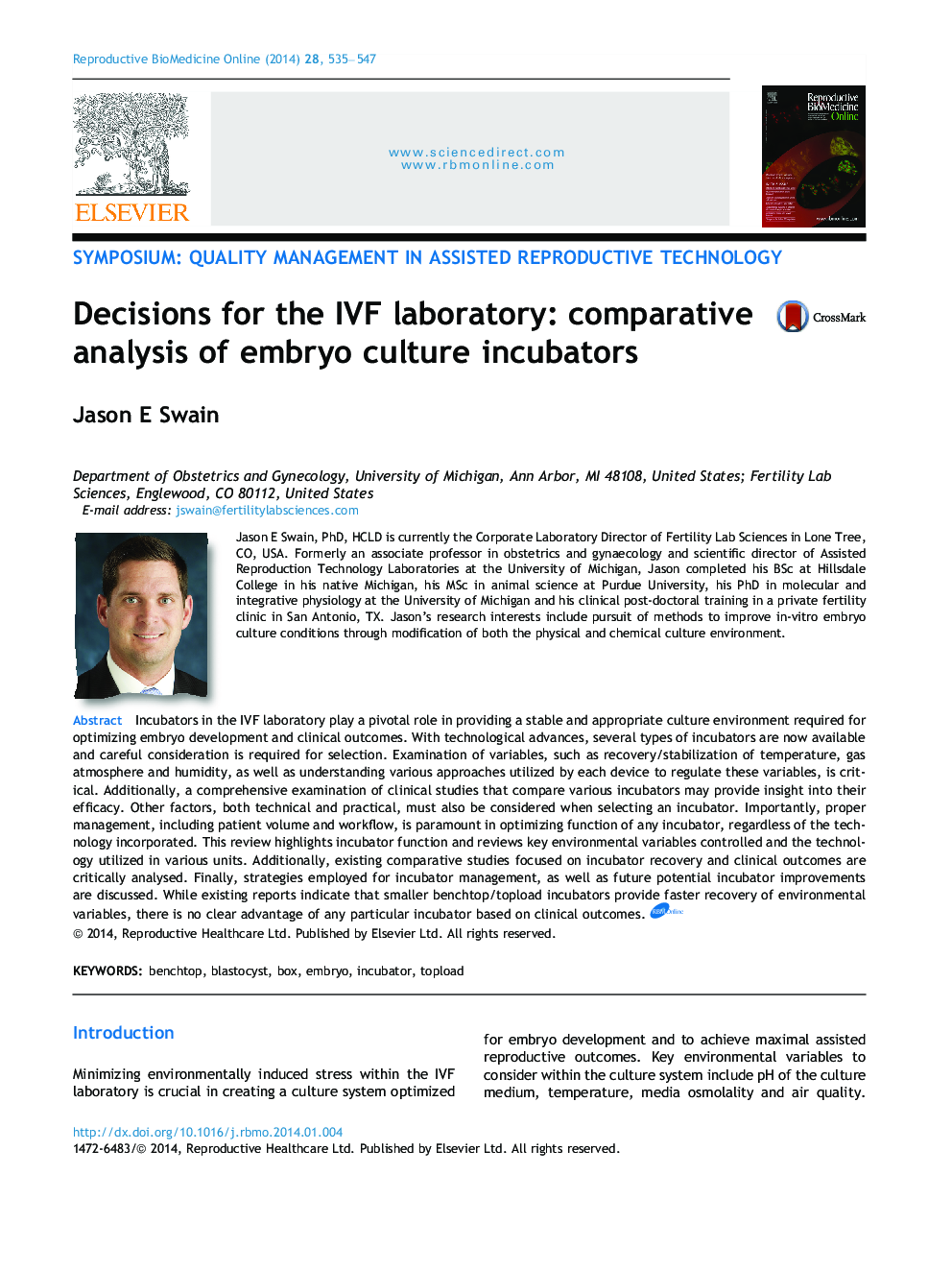| Article ID | Journal | Published Year | Pages | File Type |
|---|---|---|---|---|
| 6189032 | Reproductive BioMedicine Online | 2014 | 13 Pages |
Incubators in the IVF laboratory play a pivotal role in providing a stable and appropriate culture environment required for optimizing embryo development and clinical outcomes. With technological advances, several types of incubators are now available and careful consideration is required for selection. Examination of variables, such as recovery/stabilization of temperature, gas atmosphere and humidity, as well as understanding various approaches utilized by each device to regulate these variables, is critical. Additionally, a comprehensive examination of clinical studies that compare various incubators may provide insight into their efficacy. Other factors, both technical and practical, must also be considered when selecting an incubator. Importantly, proper management, including patient volume and workflow, is paramount in optimizing function of any incubator, regardless of the technology incorporated. This review highlights incubator function and reviews key environmental variables controlled and the technology utilized in various units. Additionally, existing comparative studies focused on incubator recovery and clinical outcomes are critically analysed. Finally, strategies employed for incubator management, as well as future potential incubator improvements are discussed. While existing reports indicate that smaller benchtop/topload incubators provide faster recovery of environmental variables, there is no clear advantage of any particular incubator based on clinical outcomes.During the IVF procedure, gametes and embryos spend the majority of their time within the confines of the laboratory incubator. Maintaining environmental stability inside the incubator chamber is therefore critical to reduce environmental stressors and to maintain appropriate growth conditions. This makes the laboratory incubator one of the most important pieces of equipment within the IVF laboratory and highlights the importance of incubator selection, which is one of the key decisions within the IVF laboratory. Paramount in the process of making an informed decision regarding IVF incubator selection is knowledge of incubator technology and functioning. Different type of gas sensors, varying methods of temperature regulation and size of the incubator are all-important variables for consideration when selecting from an ever-growing number of incubator options. Furthermore, analysis of existing comparative studies may offer insight into incubator function, although many of the existing studies fail to control for key variables that can impact growth conditions. Importantly, regardless of the incubator or its technology, proper incubator management is critical to optimize embryo development and assisted reproductive outcomes. An appropriate number of incubators and workflow management are essential to help ensure proper growth conditions.
